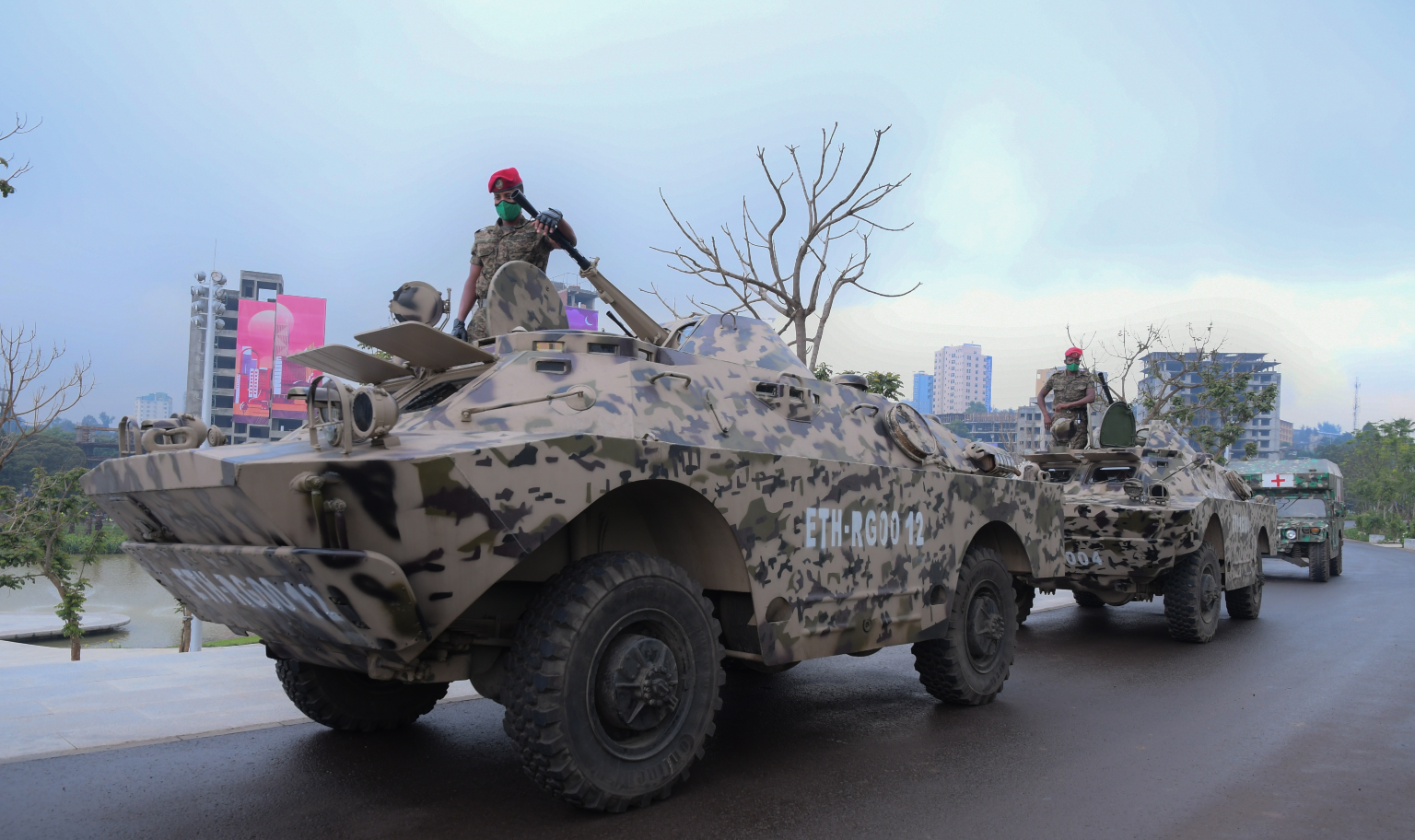Ethiopian military has taken 'full control' of Tigray capital, chief of staff says
Sign up now: Get ST's newsletters delivered to your inbox

Authorities had said earlier that government forces were in the final stages of an offensive in the Tigray region.
PHOTO: EPA-EFE
Follow topic:
ADDIS ABABA/NAIROBI (REUTERS) - Ethiopian Prime Minister Abiy Ahmed said on Saturday (Nov 28) that military operations in the northern region of Tigray have been completed, shortly after he announced federal troops had seized full control of the regional capital Mekelle.
"I am pleased to share that we have completed and ceased the military operations in the Tigray region," he said in a tweet.
Less than an hour earlier, he said in a statement, "The federal government is now fully in control of the city of Mekelle".
There was no immediate comment from the Tigray People's Liberation Front (TPLF) forces, who have been fighting Ethiopian troops for the past three weeks in a conflict that has sent shockwaves through the Horn of Africa.
Abiy said police were searching for the TPLF leaders. It was not clear if any of them had surrendered.
"Federal police will now continue their task of apprehending TPLF criminals and bring them to the court of law," said the prime minister, who has called the government offensive a law and order operation.
Claims from all sides are difficult to verify since phone and internet links to the region have been down and access has been tightly controlled since the fighting began.
Authorities had said earlier that government forces were in the final stages of an offensive in the region and would take care to protect civilians in Mekelle, a city of 500,000 people.
Abiy said the army had secured the release of thousands of troops from the Northern Command, a military unit based in Tigray, who he said had been held hostage by the TPLF.
Federal troops had taken control of "the airport, public institutions, the regional administration office and other critical facilities," Abiy said.
State television said federal forces were in full control of the city by 7pm.
Earlier on Saturday, a diplomat in direct contact with residents, and the leader of Tigrayan forces, said federal forces had begun an offensive to capture Mekelle.
The government had given the TPLF an ultimatum that expired on Wednesday to lay down arms or face an assault on the city.
Thousands of people are believed to have died during the fighting this month, and some 43,000 refugees have fled to neighbouring Sudan.
Tigray also borders the nation of Eritrea and the conflict has stirred concern about an escalation around the country of 115 million people, or in the region.
Abiy accuses Tigrayan leaders of starting the war by attacking federal troops at a base in Tigray. The TPLF says the attack was a pre-emptive strike.
Abiy told African peace envoys on Friday that his government will protect civilians in Tigray. The prime minister has said he regards the conflict as an internal matter and his government has so far rebuffed attempts at mediation.
No word on casualties
Abiy did not mention in his statements whether there had been casualties in the military offensive to capture Mekelle.
Rights groups have been concerned that an assault on the city could lead to significant civilian casualties.
The prime minister's spokeswoman, Billene Seyoum, had said earlier on Saturday: "The safety of Ethiopians in Mekelle and Tigray region continues as priority for the federal government".
Debretsion Gebremichael, leader of the Tigray People's Liberation Front (TPLF) told Reuters in text messages earlier on Saturday that Mekelle was under "heavy bombardment".
Billene said: "The Ethiopian National Defense Forces do not have a mission to bombard its own city and people.
Mekelle remains one of Ethiopia's key cities and the efforts to bring to justice the criminal clique will not entail discriminatory 'bombardment' as alluded by TPLF and their propagandists." Debretsion also accused the Eritrean military of crossing the border and raiding refugee camps in Tigray to capture refugees who have fled Eritrea in the past.
The Eritrean government has not responded to calls from Reuters for more than two weeks.
United Nations refugee agency chief Filippo Grandi said on Saturday that he was deeply concerned about the 100,000 Eritrean refugees in Ethiopia, and what he called unconfirmed reports of violence against them.
The TPLF and Eritrea are archenemies: the TPLF was in charge in Addis Ababa when Ethiopia and Eritrea fought a war from 1998-2000. But Eritrea and Abiy have warm relations. The Ethiopian government has denied TPLF accusations that Eritrean troops are operating on Ethiopian soil.
Eritrea is one of the world's most repressive nations. It has never had elections and no independent media has operated there for two decades. Upon turning 18, Eritrean men and women must enter compulsory service to the state for an indefinite amount of time. Around 10% of the population has fled.
On Friday evening in Eritrea, "a loud noise, possibly an explosion" was heard in the capital Asmara, the US Embassy there said in a statement early on Saturday. TPLF rockets hit Eritrea on Nov 14.
Reflecting international concern about the three-week conflict, British foreign minister Dominic Raab said on Saturday that he was "very concerned" by reports of fighting in Mekelle and further rocket attacks on Eritrea.
Tigrayans, who make up about 6% of Ethiopia's 115 million population, dominated the government until Abiy took power two years ago.
Abiy pledged to unite Ethiopians and introduce freedoms after years of state repression that filled jails with tens of thousands of political prisoners.
His government also put senior Tigrayan officials on trial for crimes such as corruption, torture and murder. The Tigrayan region saw those trials as discrimination.

